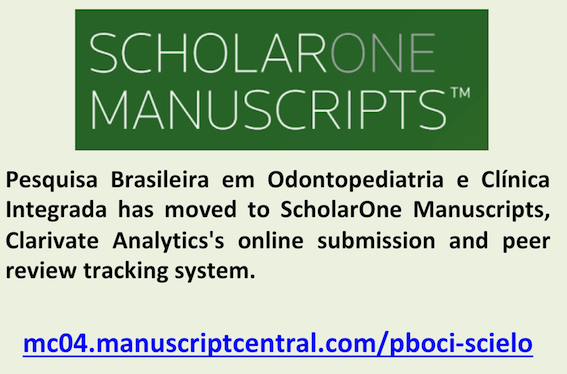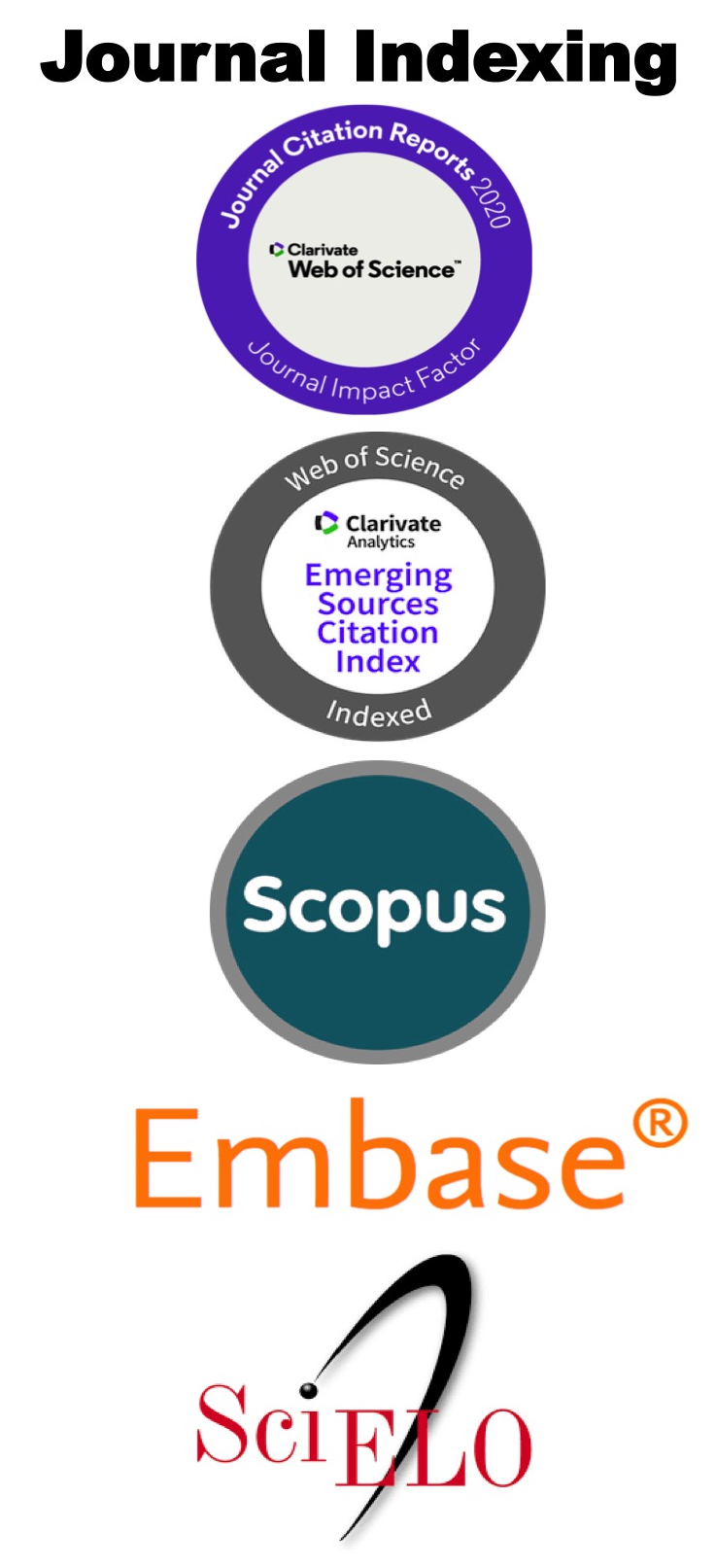Validation of an Ultrashort Persian Version of Oral Health Impact Profile (OHIP-5) Questionnaire
Keywords:
Oral Health, Quality of Life, Surveys and Questionnaires, Reproducibility of ResultsAbstract
Objective: To validate the ultrashort (5-item) Persian version of OHIP by investigating its psychometric properties. Material and Methods: Construct validity was assessed by examining the correlation between OHIP-5 scores and self-reported oral health status, judgment for dental treatment needs and the number of natural teeth. Reliability was calculated using Cronbach’s alpha and corrected item-total correlation. Effect size (ES) and Standardized Response Mean (SRM) were calculated for the responsiveness of the scale and factor analysis was done by measuring Kaiser-Meyer-Olkin (KMO), Bartlett’s sphericity test and scree plot. Results: In 430 subjects (mean age 41.56+/-11.35 years, 56% female) the correlations between OHIP-5 scores and mentioned items were significant (p<0.01) indicating sufficient construct validity. The reliability coefficient (Cronbach's alpha) of the OHIP-5 was above the recommended 0.7 thresholds (0.809) and considered well. For evaluation of responsiveness, the ES was measured to be 5.604 and the SRM was 1.5. Moreover, in the confirmatory factor analysis, the unidimensional model for OHIP5 approved by indices (KMO=0.81, p<0.001 for Bartlett sphericity). Conclusion: The Persian version of OHIP-5 is a precise, valid, reliable and unidimensional instrument for assessing oral health-related quality of life among the general adult population.
References
Bennadi D, Reddy CV. Oral health related quality of life. J Int Soc Prev Community Dent 2013; 3(1):1-6. https://doi.org/10.4103/2231-0762.115700
Slade GD, Spencer AJ. Development and evaluation of the Oral Health Impact Profile. Community Dent Health 1994; 11(1):3-11.
Slade GD. Derivation and validation of a short-form oral health impact profile. Community Dent Oral Epidemiol 1997; 25(4):284-90. https://doi.org/10.1111/j.1600-0528.1997.tb00941.x
Slade GD. Oral health-related quality of life is important for patients, but what about populations? Community Dent Oral Epidemiol 2012; 40(Suppl 2):39-43. https://doi.org/10.1111/j.1600-0528.2012.00718.x
Sischo L, Broder HL. Oral health-related quality of life: what, why, how, and future implications. J Dent Res 2011; 90(11):1264-70. https://doi.org/10.1177/0022034511399918
John MT, Miglioretti DL, LeResche L, Koepsell TD, Hujoel P, Micheelis W. German short forms of the Oral Health Impact Profile. Community Dent Oral Epidemiol 2006; 34(4):277-88. https://doi.org/10.1111/j.1600-0528.2006.00279.x
Naik A, John MT, Kohli N, Self K, Flynn P. Validation of the English-language version of 5-item Oral Health Impact Profile. J Prosthodont Res 2016; 60(2):85-91. https://doi.org/10.1016/j.jpor.2015.12.003
Locker D, Jokovic A, Clarke M. Assessing the responsiveness of measures of oral health-related quality of life. Community Dent Oral Epidemiol 2004; 32(1):10-8. https://doi.org/10.1111/j.1600-0528.2004.00114.x
Baba K, Inukai M, John MT. Feasibility of oral health-related quality of life assessment in prosthodontic patients using abbreviated Oral Health Impact Profile questionnaires. J Oral Rehabil 2008; 35(3):224-8. https://doi.org/10.1111/j.1365-2842.2007.01761.x
Van der Meulen MJ, John MT, Naeije M, Lobbezoo F. Developing abbreviated OHIP versions for use with TMD patients. J Oral Rehabil 2012; 39(1):18-27. https://doi.org/10.1111/j.1365-2842.2011.02242.x
Larsson P, John M, Hakeberg M, Nilner K, List T. General population norms of the Swedish short forms of Oral Health Impact Profile. J Oral Rehabil 2014; 41(4):275-81. https://doi.org/10.1111/joor.12137
León S, Correa-Beltrán G, De Marchi RJ, Giacaman RA. Ultra-short version of the oral health impact profile in elderly Chileans. Geriatr Gerontol Int 2017; 17(2):277-85. https://doi.org/10.1111/ggi.12710
Charter RA. Sample size requirements for precise estimates of reliability, generalizability, and validity coefficients. J Clin Exp Neuropsychol 1999; 21(4):559-66. https://doi.org/10.1076/jcen.21.4.559.889
Navabi N, Nakhaee N, Mirzadeh A. Validation of a Persian version of the Oral Health Impact Profile (OHIP-14). Iranian J Publ Health 2010; 39(4):135-9.
John MT, Rener-Sitar K, Baba K, Čelebić A, Larsson P, Szabo G, et al. Patterns of impaired oral health-related quality of life dimensions. J Oral Rehabil 2016; 43(7):519-27. https://doi.org/10.1111/joor.12396
Mignani S, Rodrigues J, Roy R, Shi X, Ceña V, El Kazzouli S, et al. Exploration of biomedical dendrimer space based on in-vitro physicochemical parameters: key factor analysis (Part 1). Drug Discov Today 2019; 24(5):1176-83. https://doi.org/10.1016/j.drudis.2019.02.014
John MT, Reissmann DR, Feuerstahler L, Waller N, Baba K, Larsson P, et al. Exploratory factor analysis of the Oral Health Impact Profile. J Oral Rehabil 2014; 41(9):635-43. https://doi.org/10.1111/joor.12192
John MT, Feuerstahler L, Waller N, Baba K, Larsson P, Celebić A, et al. Confirmatory factor analysis of the Oral Health Impact Profile. J Oral Rehabil 2014; 41(9):644-52. https://doi.org/10.1111/joor.12191
John MT, Reissmann DR, Feuerstahler L, Waller N, Baba K, Larsson P, et al. Factor analyses of the Oral Health Impact Profile - Overview and studied population. J Prosthodont Res 2014; 58(1):26-34. https://doi.org/10.1016/j.jpor.2013.11.002
Santos CM, Oliveira BH, Nadanovsky P, Hilgert JB, Celeste RK, Hugo FN. The Oral Health Impact Profile-14: a unidimensional scale? Cad Saúde Pública 2013; 29(4):749-57. https://doi.org/10.1590/s0102-311x2013000800012
Downloads
Published
How to Cite
Issue
Section
License
Copyright (c) 2022 Pesquisa Brasileira em Odontopediatria e Clínica Integrada

This work is licensed under a Creative Commons Attribution-NonCommercial 4.0 International License.



